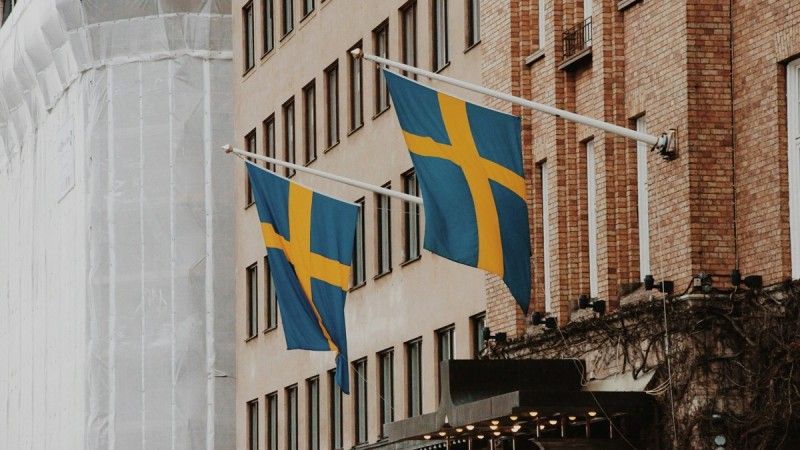Europe needs more of a Nordic-Baltic-Poland-leadership

Photo. CARTIST/ Unsplash
The world as we know it is slipping through our fingers. It is a fact that cannot be compartmentalized away. Global developments between the dominant superpowers are accelerating and need to be addressed by Europe – with full force and across policy areas, political blocs, and national borders.
In Europe and the free West, we must simultaneously manage extremely serious forces and threats that are driving multiple destructive developments at the same time. These include, but are not limited to: 1) Russia’s brutal war of aggression against Ukraine, 2) a culminating „Axis” (in various guises) through expanding and intensifying hybrid warfare, driven primarily by Russia and to varying degrees China and Iran, 3) a United States that allows itself to be governed by an governed by a mercurial administration whose dangerous handling of Russia increases the risks for Europe, and makes territorial claims (albeit still mainly rhetorical) claims to Canada, Greenland, and others.
Swedish and Northern European perspective
We are in a time and place where we need to rid ourselves of the perceptions and arguments that dominated foreign and security policy talks just a few months ago. But how do we do it? And more importantly, with whom does one have this conversation?
From a Swedish and Northern European perspective, it is increasingly clear that what binds us together with our nearest neighbours is our shared geographical situation, but more importantly it is the aligned values, motivations, and long term goals that bind us together at the core. A shared history, which nonetheless always has differing perspectives, has its place and importance. But without a common idea of the future, history alone is not enough to hold any relationship together.
The uniqueness of the Nordic region is one relevant dimension. The Nordics can be described as siblings with different mannerisms and temperaments. We stem from the same family. We share a cultural connection. We are grounded by a shared home. With the Baltics, there is a shared understanding that the larger neighbourhood is threatened by an aggressor in the East. Through the continuation of the war, this Eastern neighbor is a long-term threat.
In recent decades, the relationship within the Nordic-Baltic Eight (NB8) has deepened and expanded. Not only have the Baltics integrated into the region through EU and NATO membership, but the Nordics are rediscovering their Baltic connection, with the sea once again binding us together - economically, geostrategically, as a people.
The icing on the cake, or really the base layer, is that we have dynamic economies and an emerging security leader in the form of Poland, bringing European credibility and making us all safer.
As we have seen, there are several ongoing attempts to address the challenges of maintaining and increasing support for Ukraine, the potential loss of an American ally under current leadership, as well as bolstering resilience against threats from Russia, China, Iran and other malign actors.
Coalition of willing
Acoalition of the willing is one of the structures that expands support more broadly, throughout the free world, and is open for participation for those acting to address shared challenges.
Does it make sense to talk about other constellations and create new allies?
Yes. Coming back to our shared history, geography, values and close relations within the Nordic-Baltic-Poland (NBP) initiative, there are multiple reasons to put energy and effort into this structure. While Europe itself needs to be united, we are well aware that there are many different understandings of what Europe is and can be. We also know that, regardless of whether larger central European powers are at ease or in tension with each other, other parts of Europe are less in focus at the moment. This is an internal dynamic that needs to be revised for the sake of our own interests.
Carrying the shared burden of standing next in line for Russia’s expansionist ambitions, whilst also steadfast upholders of democracy, makes us highly relevant for all of Europe. We need to take a leadership position, not ask for it.
There has been a tendency in the EU to wait for the leaders of old Europe to guide actions. This must change. Given the Nordic’s strong commitment to Ukraine, the Baltic’s steadfast and sober assessment of Russia, and Poland’s increasing defense and economic contributions, the NBP alliance framework can create sustainable stability and security around NB8.
At this moment in history, Europe needs to have leaders capable of addressing contemporary conflicts . We have seen impressive continuity of support for Ukraine, but also periods of troubling indecisiveness. Faltering US leadership underscores the urgent need for new strategies to navigate current crises. Engaging closely with like-minded nations will enhance collective strength, independent of U.S. leadership.
A revitalized cooperation for the future of Europe starts, but does not of course end, with NBP. Rather, it can be an essential driving force: within acoalition of the willing, within the EU and NATO, and within numerous other multi- and international constellations. Together, and united, as the wording goes, we are stronger.
Author: Anna Rennéus Guthrie, Director Stockholm Free World Forum/Frivärld, a Swedish foreign and security policy-oriented think tank.
This text is part of a newly published report (SFWF/Frivärld, 2025).

WIDEO: Defence24 Days 2025: Premier Defence & Security Conference in CEE